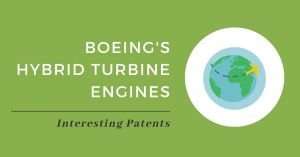Spotify’s Use of Language Processing
About the Patent Application
Spotify’s ambiguous play requests patent demonstrates an improved method of analyzing a user’s voice commands through natural language processing to determine whether they are an actual request to play media or just a part of natural conversation. The method has the capability to associate an account with the play request, identify the playback state of that account, and determine whether to suspend the current media and initiate alternate media to be played.
WHAT THE INVENTION WOULD DO
Spotify’s method analyzes the speech pattern of a user after it detects an ambiguous play request. The system will suspend the playback of the first media type and determine whether to initiate the playback request. One method used to determine if the request was ambiguous is to analyze the user’s speech after playback has been suspended. If no user speech is detected within a short time frame after the media has been suspended the request is deemed to be a real request and the alternate media is played.
why This Patent Application is Interesting
This patent enables users to avoid unwanted media changes and helps conserve consumers’ computing resources. Current methods used to process media requests are very rigid and often overbearing and incorrect. By utilizing already existing language processing capabilities the integration of this system into the user’s experience will be seamless. The use of speech pattern analysis rather than a keyword detection type method also helps to minimize the information collected on the user.
THE DEMAND FOR NATURAL LANGUAGE PROCESSING
Natural language processing (NLP) is one of eight AI component technologies recognized by the USPTO. This particular AI branch deals with interactions between humans and machines.
In a 2020 report, NLP was recognized by the USPTO as one of the slowest diffusing components of the AI components across technology subclasses. However, new reports showcase the growing demand for NLP technologies with some forecasts estimating that 85% of business engagements will be done without human interaction by 2026 and the growth of the NLP global market size from $11.6 Billion in 2020 to $35.1 Billion by 2026.
While Natural language processing is commonly associated with speech recognition technologies like Amazon’s Alexa and Apple’s Siri, NLP is also a widely adopted technology in healthcare and has been recently utilized to track COVID-19 surges and trends in electronic health records.
Written by John DeStefano, Technical Advisor
and Lauren Hawksworth, Marketing Adminstrator
March 23, 2021


